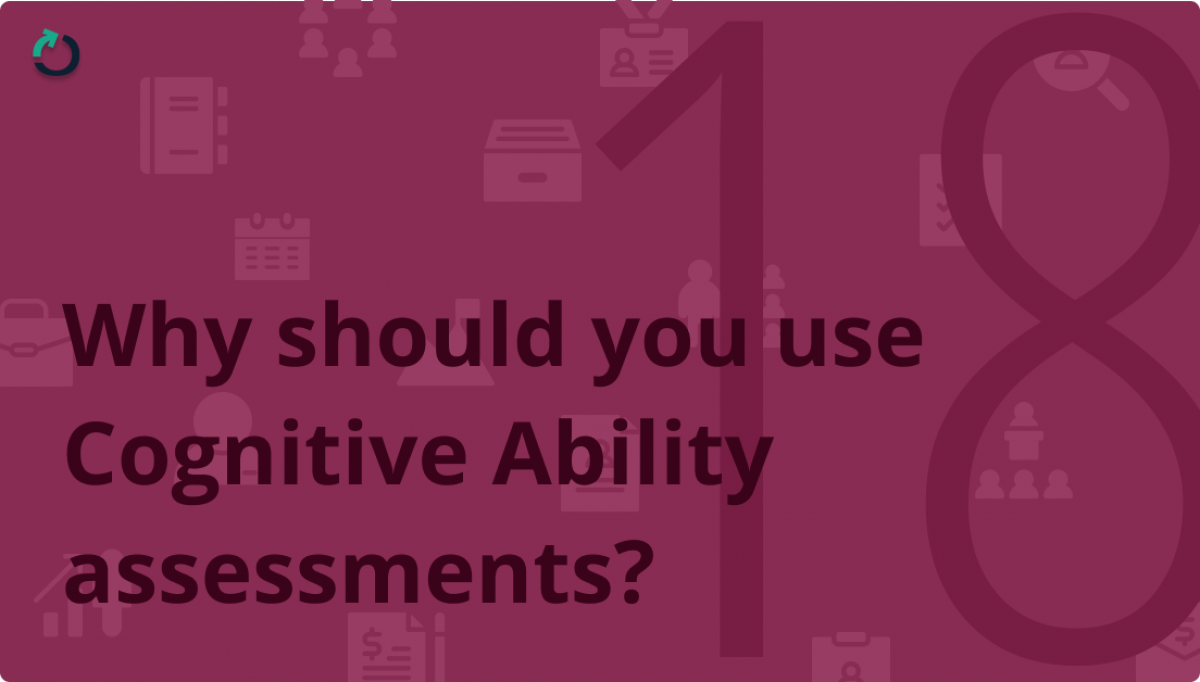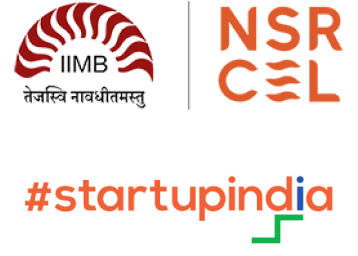If you are not convinced by the last article, where we wrote about what are cognitive assessments, here are a few concrete reasons why you should use them in your Pre-Hiring process.
Cognitive assessments are not just one of the many tools available for recruitment, but they may be the most powerful ones. Here are six reasons why.
Cognitive ability tests are predictive of job performance.
The most compelling reason to use cognitive ability tests in your hiring process is their strength as a predictor of job performance.
Numerous research papers have even attempted to discern the precise relationship between the performances in Cognitive tests and real-world job performance. As it turns out, it is not just that a correlation exists between the two, but that the cognitive tests have the highest correlation out of all the pre-hiring practices. That includes interviews, recommendation letters, CV analysis, work experience, and educational level.
Most studies have placed the correlation between the two between 0.5 and 0.7, which is insane. If you don’t understand this statistical significance, let me give you a statistics 101 on correlation.
Correlation or r value measures the relationship between two variables. For example, the relationship between the weather and the flu cases, or between the price of an object and its perceived quality.
Correlation varies between -1 and 1; -1 means it has a perfectly opposite correlation; 1 is a perfect positive correlation, and 0 means no correlation exists between the variables.
Therefore a correlation of 0.6 in the murky hiring business is a godsend, especially when most other processes correlate 0.1-0.4.
Cognitive ability tests measure learning and problem-solving skills.
Many people, who haven’t tried cognitive assessments, claim that they don’t care about their test scores but only their ability to learn. But we believe that this opinion is misguided. The Cognitive ability tests are arguably the only tools available that objectively and reliably assess learning potential.
For the most part, real-world job success is predicated on the candidate’s ability to learn, solve problems, and be composed in crunch situations rather than their knowledge. And it is well established in science that people which higher cognitive skills can learn and adapt faster and solve problems better. So, if you can measure cognitive skills, you can ensure that you have brilliant employees, with immense potential for future success, at all levels of the corporate hierarchy.
Cognitive tests can help you uncover hidden potential.
Occasionally we come across people who don’t create a strong first impression. And their CVs also don’t speak much. But are brilliant nonetheless. Cognitive ability tests have helped you identify these “Diamond in the rough” candidates. This is particularly effective when you are hiring for junior positions where it is unlikely that the candidates will have significant experience.
Cognitive ability tests save money and time.
If cognitive ability tests are used correctly, they save you thousands of dollars in time and money because, as seen earlier, a 15 min cognitive test is as effective as an hour-long interview. So If you make candidates take cognitive tests, you can significantly reduce the number of hours you spend on interviews. And if you are using a platform like Merreo, with a cost of 1 dollar per candidate, your saving will be north of a thousand dollars per hire.
Cognitive ability tests create a positive impression on the candidates.
The positive impression is a highly underrated aspect of Cognitive assessments, but creating a great impression on your potential employees generates a positive word of mouth, and, in the long run, it increases the company’s reputation, thereby increasing the level of talent wanting to work for your company.
That is not it. By using modern hiring practices, asking thoughtful questions, and giving candidates the time to showcase their abilities, you are giving them a positive peek into your company’s culture. And this might even make the candidates crave to work for your company. Great stuff! Right?
When used properly, they can eliminate bias in the screening process.
Modern-day recruiters are trying their best to avoid unconscious biases at every step of the hiring process. But there is a reason they are called unconscious biases.
These things pop up without your knowledge, so you won’t realize that a bias affected you until someone points it out. So, if the only way you are screening candidates is through CV screening and Interviews, you are giving yourselves more windows of opportunity to get affected. A standardized hiring process, with cognitive tests, can help you remove some aspects of unconscious biases.
There is an argument that cognitive and intelligence tests exhibit bias toward certain cultures and backgrounds. But that is a solvable problem. Let’s get to how we can do that later. Despite that, this intelligence bias is lesser than the unconscious biases that a recruiter might exhibit during the interviews and CV screening.
We have seen the “What” and the “Why” of Cognitive ability pre-hiring assessments. In the next one, we will discuss the different types of cognitive assessments and their applications. Meanwhile, feel free to try merreo and try out a couple of our cognitive ability pre-hiring tests to get a feel for what they are.





